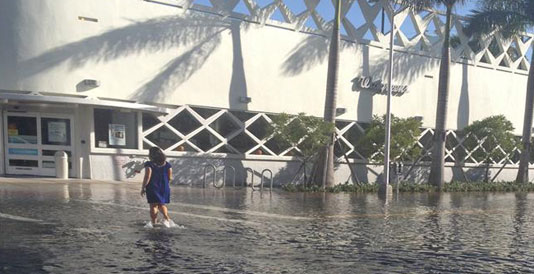 December 3, 2014 - Will vector-borne diseases such as Dengue Fever and West Nile Virus increase along with sea level rise? Florida Atlantic University (FAU) continues to support the Florida Institute for Health Innovation (FIHI, formerly FPHI) in its work studying climate change related health risks. The project has been made possible by a $250,000 grant from the Kresge Foundation to FIHI over a two year period ending in 2015. (See related article.)
December 3, 2014 - Will vector-borne diseases such as Dengue Fever and West Nile Virus increase along with sea level rise? Florida Atlantic University (FAU) continues to support the Florida Institute for Health Innovation (FIHI, formerly FPHI) in its work studying climate change related health risks. The project has been made possible by a $250,000 grant from the Kresge Foundation to FIHI over a two year period ending in 2015. (See related article.)FAU’s Department of Civil, Environmental, and Geomatics Engineering teamed with FAU’s School of Urban and Regional Planning to provide GIS data mapping and analysis. Combined with health data from the Florida Department of Health, researchers are seeking to identify populations in Southeastern Florida vulnerable to the effects of sea level rise and to determine if these populations will be at an increased risk for disease as sea levels rise. This phase of the project focuses on cryptosporidiosis, giardiasis, vector-borne diseases, vibriosis, and salmonellosis.
Project planning committee member Dr. Colin Polsky, Director of the Center for Environmental Studies at FAU (CES), said the project is in line with the Center’s vision of improving Florida's sustainability through research, education and outreach on ecology, climate change, and society: "The interdisciplinary nature of the project is the kind CES is designed to support. Targeted research in the health domain is particularly needed, and addressing this need puts CES on the cutting edge.”
For more information on climate change research and education at FAU’s Center for Environmental Studies, please visit www.ces.fau.edu.
Photo Caption: Lunar High Tide Flooding Miami Beach. Photo Credit: FAU CES.












